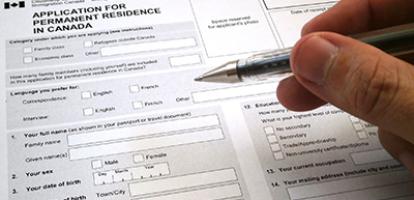Nobody likes the U.S. debt ceiling, it seems. If the recent deal to raise it does not pass both houses of Congress, the U.S. government will soon be legally unable to borrow. Within weeks – perhaps days – it will have to slash spending. It may default on already-outstanding debt. A financial crisis and recession could follow. What’s to like?
There is one thing. The ceiling periodically brings U.S. political leaders face-to-face with their fiscal profligacy. Granted, they respond with partisanship and brinksmanship. They talk about gimmicks, such as minting a trillion-dollar coin and forcing the U.S. Federal Reserve to buy it with newly printed money.
Those leaders will not meaningfully address the chronically widening gap between spending and revenue any time soon. Still, the ceiling forcibly reminds U.S. legislators of their duty, however poorly executed, as stewards of public funds.
Maybe Canada needs a debt ceiling, too. Canada’s leaders are also running up prodigious debts. Our federal government took 150 years – until 2017 – to accumulate its first $650-billion of net debt. Its latest projections show it accumulating that much again over the decade from 2017 to 2027.
Ottawa’s borrowing is absorbing hundreds of billions of saving that might otherwise have financed investment in housing and productivity-enhancing capital. Our incomes will be lower, and the interest we will have to pay on that debt will be higher.
But the discussions about how much taxes will have to rise, or how much smaller future programs will have to be, are not happening. The role of Canada’s Parliament in stewarding public funds is, at the moment, negligible.
However much the fiscal blowout during COVID-19 drove the issue into the background, the need for elected representatives to approve the raising and spending of public money – no taxation without representation – has been a fundamental democratic principle for more than three centuries. Not only in the United States, but in Britain and other democracies, including in Canada and its provinces and territories.
Before elected bodies gained that control, the history of public finances was dismal. Absolute monarchs and unaccountable executives made war and spent lavishly with no accountability. Confiscation of wealth, currency debasement and defaults were regular occurrences.
Since legislators gained that control, the history of public finances is much better. Elected representatives responsible for authorizing taxes and spending had to discuss trade-offs – a dollar more here meant a dollar less there. Decisions to borrow to fight wars or cushion depressions included discussions about how to pay interest and repay principal afterward. Defaults by democratic governments have been very rare.
But elected representatives’ stewardship of public funds is under threat. The rarity of defaults has itself, along with more sophisticated financial markets and growing pools of savings around the world, made borrowing easier. During the pandemic, until the resulting inflation made them stop, central banks bought unprecedented amounts of government debt, making borrowing easier yet.
Unconstrained borrowing undermines legislative control of spending and taxing. Governments that can borrow at will can spend far more than they tax, with no accountability to legislators, and with no accountability of legislators to voters. Free from the need to gain approval from elected representatives today, governments force the hands of elected representatives in the future – who will have to raise taxes and cut programs to service bills run up in the past.
The U.S. legislated limit on government borrowing is not the best control imaginable, but it gives Congress a tool to address that problem. However unimpressive the brinksmanship, partisanship and gimmicks of the debt ceiling debate, the United States is at least discussing trade-offs – how much more tax; how much less spending.
However tempting it is for Canadians – exposed to the consequences of U.S. decisions – to disparage the crisis there, Congress can limit the borrowing that otherwise vitiates legislative control of public money.
Those are conversations – that is a power – that we in Canada should have.
Op-Ed from the Globe and Mail





